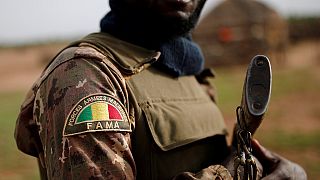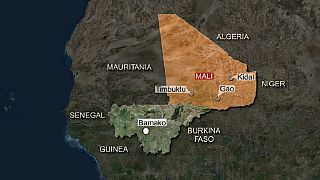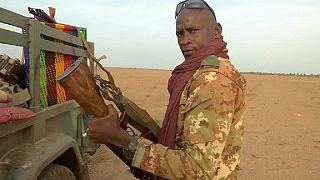Africa
United Nations Secretary-General Antonio Guterres is warning that terrorist groups have strengthened their foothold across Africa’s Sahel region, which is experiencing escalating violence.
The U.N. chief said in a report to the U.N. Security Council circulated Wednesday that the expanding foothold is “making large swaths of territory unstable and stoking ethnic, violence, especially in Burkina Faso and Mali.”
Guterres said combatting terrorism in the Sahel “cannot be outsourced” to the G5 Sahel Force established by Burkina Faso, Mali, Niger, Chad and Mauritania, or to the region or to the African continent.
“Terrorism is a global issue, and the entire international community has a responsibility to contribute to the collective effort of tackling extremist violence in the Sahel, along with other cross-border challenges, including trafficking in persons, illicit goods, weapons and drugs, and migration and displacement,” he said.
The secretary-general said the challenges the Sahel is facing are caused by poverty, marginalization, impunity and weakened government presence, “and are compounded by the impact of climate change and the scarcity of natural resources.”
Civilians are bearing the brunt of the violence, Guterres said, calling the numbers “shocking.”
“Since January alone, more than 1,500 civilians have been internally displaced across the five countries, representing more than twice the number of persons displaced in 2018,” he said.
Burkina Faso has experienced the most significant rise, with 486,000 displaced people this year compared with 80,000 last year, he said.
Guterres’ report focused on the G5 Sahel force, which he said “continues to face significant training, capability and equipment shortfalls” that hamper its operations. “The lack of air assets, armored vehicles and transport capabilities and individual protection equipment compounds the threat posed by the use of improvised explosive devices,” he said.
But Guterres said he is “particularly encouraged” by the commitment of leaders of the West African regional group ECOWAS at a summit in September to pledge “$1 billion to fight terrorism and extremism over the next five years.” He said this “illustrates a willingness to take ownership and address the challenges facing the countries.”
Guterres also welcomed contributions from the European Union and others, and noted the U.S. provision of equipment and training to troops from Chad, Mauritania and Niger.
But he said the G5 Sahel force will need more support “to fully play its role and yield more tangible results” in combating the Islamic State and other extremist groups.
Guterres reiterated his call for “predictable and sustained funding to the force” by the U.N. Security Council, which the United States and others have so far blocked.
Acting U.S. Ambassador Jonathan Cohen said in May that the Trump administration continues to believe bilateral aid is the best way to support the G5 force.
AP













Go to video
Nelson Mandela International Day 2025: The power to end poverty is in our hands
00:11
US, European allies agree August deadline for Iran nuclear deal
Go to video
UN Special Rapporteur calls for concrete action on 'genocidal' Gaza occupation
01:07
Only 35% of sustainable development goals on track to meet target, UN says
02:03
Muhammadu Buhari's legacy: higlight of his presidential tenure
01:07
UN-Russia agricultural export memorandum will not be extended